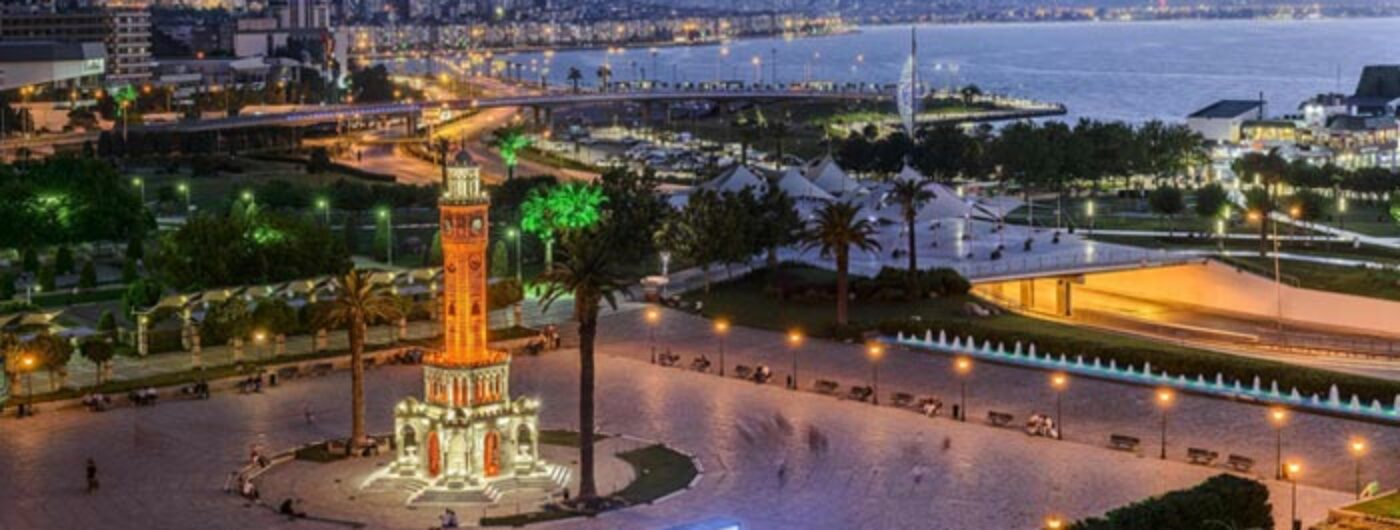
Izmir Urban Integrated Waste Management Project
Waste management is one of the main environmental problems in Turkey’s cities, including Izmir, and it is also a key strategic issue with particular relevance at regional level. Izmir’s current solid waste landfill facility is reaching its full capacity. The new facility will provide high-quality integrated solid waste management for Izmir at a critical time, and will adopt an exemplary, innovative and environmentally friendly urban infrastructure approach.
The project Izmir Urban Integrated Waste Management was granted the UfM labelling from 16-02-2016 to 16-06-2020
The Project will provide high-quality integrated solid waste management for Izmir, one of Turkey’s major cities, at a critical point as the city’s current solid waste landfill facility established in 1992 has only another four years of capacity.
The new facility will adopt an innovative approach to waste management as first of its kind in Turkey, to process waste in a fully-automatic facility in closed spaces and turn it into products that have an economical value such as energy or compost.
The Izmir Solid Waste Management Facility, to be constructed from January 2018 in the northern part of Izmir covering a total of 143 hectares and with a capacity of 2,100 tonnes per day, will bring significant environmental benefits for the city of Izmir by minimising associated impacts and improving the living standards of the population. Once completed, the project will serve nine districts in the region benefitting a population of 2.7 million.
In this respect, the project will have a considerable demonstration effect and significant environmental and health benefits for the city of Izmir. It will help the efforts to reduce and prevent greenhouse gas emissions, decrease the release of pollutants, conserve resources and save energy, as well as contribute to waste recycling and energy production. The efficient management of solid waste will reduce adverse impacts on the environment and on human health, as well as support socio-economic development.
With the new waste treatment system, the future operator will be able to generate revenues through waste recycling and waste to energy operations, contrary to the current unsustainable landfilling practice. With regard to social aspects, the capacity building actions and vocational training directed towards the illegal waste collectors will contribute to integrating them into the formal workforce and upgrade their quality of life.
The project is strongly aligned with the goals of the UfM, in terms of the mandate given to it by the Ministerial Conference on Sustainable Urban Development, held in Strasbourg in November 2011. In accordance with this mandate, the UfM must foster sustainable urban development with an integrated social, economic and environmental approach that ensures territorial cohesion.
It is also compliant with the UfM strategy by promoting a sustainable and innovative urban project of solid waste management with energy regenerating and waste water treatment, as well as social aspect that foresees social programmes of capacity building and vocational training. As such, it encompasses the efforts undertaken by the UfM in the fields of the transport and urban development with those of the energy and eater and environment. Furthermore, the project offers regionally replicable solutions in response to the major urban development challenges facing the region arising from demographic and environmental pressures.
About the promoter and partner institutions
Izmir Metropolitan Municipality (IMM)
IMM is a legal entity established and governed under the Municipal Law in Turkey. It provides municipal services to Izmir’s inhabitants in the areas of urban transportation, solid waste management, water supply, waste water management, etc.
European Bank of Reconstruction and Development (EBRD) was founded in 1991 to create a new post-Cold War era in Central and Eastern Europe, furthering progress towards ‘market-oriented economies and the promotion of private and entrepreneurial initiative’. The EBRD is owned by 64 countries, the European Union and the European Investment Bank.

